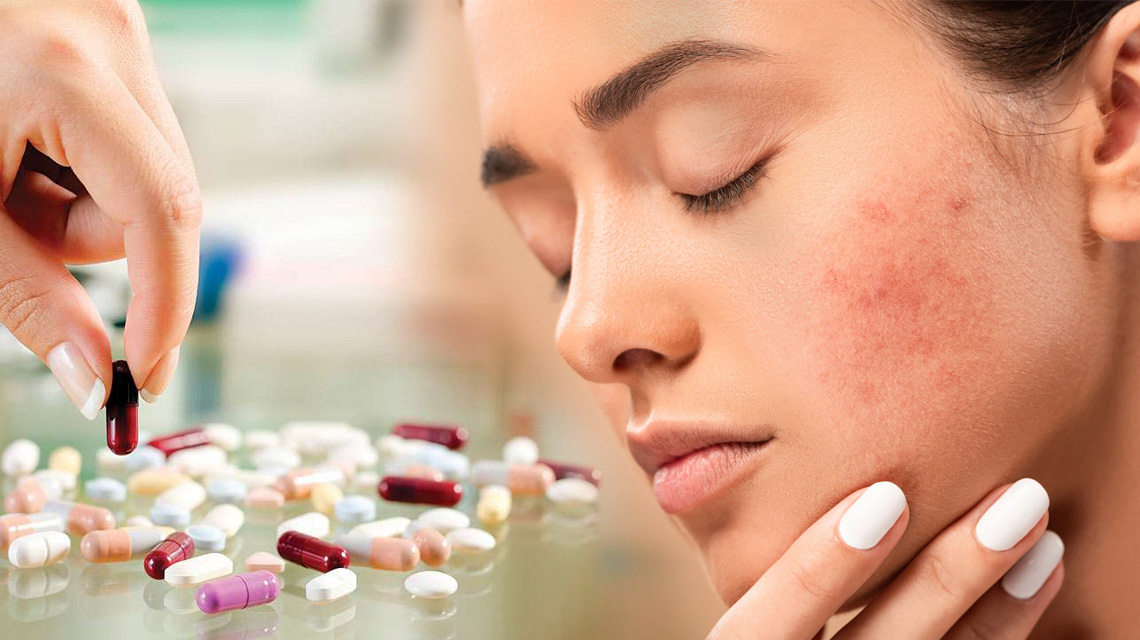Skin Care: Generic Drugs for Acne
By Jason GrayMar 25, 20211385

While most people get rid of acne past teen years, some people consistently experience severe acne for a long time. Acne is a skin condition that happens when hair follicles become blocked with oil and dead cells. Acne also causes whiteheads as well as blackheads and pimples.
Effective acne treatments are available in the market that helps to treat the bump slowly, and it gets healed. Later, all the acne and pimples get eliminated. Acne can cause scars and distress depending on the severity as some people also develop painful cystic acne and cause redness. Therefore, the risk of acne breakouts is lower when treatment is started early. Most of the time, doctors will recommend prescription–based medicines, OTC medicines, face washes, facials, gels, etc.
Common Signs of Acne
- Whiteheads (closed plugged pores)
- Blackheads (open plugged pores)
- Small red, tender bumps (papules)
- Papules with pus on their tips
- Large painful bumps under the skin, nodules
- Painful pimples, cystic lesions filled with pus
- Acne can also appear on the face, forehead, chest, upper back, and shoulders.
Causes of Acne
- Excess oil (sebum) production
- Hair follicles plugged by excess oil and dead skin cells
- Bacteria
- Inflammation
Some other factors that can also trigger acne are:
Hormonal changes: Androgen is a hormone that is known to increase in teenage girls and boys. It stimulates sebaceous glands to enlarge and results in excess sebum. Hormone changes during mid-age, especially in women it can result in severe acne breakouts.
Certain medications: Using certain medicines can also cause acne, such as corticosteroids, testosterone, or lithium.
Diet: Research studies indicate that consuming certain foods rich in carbohydrates, including bread, bagels, and chips, may make your acne breakouts worse. However, further studies are required to examine whether people with acne with some dietary restrictions reduce acne.
Stress: Stress does not lead to acne, but when you have acne, then stress can it worse.
Treatment of Acne
Medications that are actively composed of retinoic acids or tretinoin works well for mild to moderate acne. These are widely used topical medicine that is available in gels, lotions, and ointments. Examples are tretinoin (Avita, Retin-A Generic , others), adapalene (Differin), and tazarotene (Tazorac, Avage, others).
Use these medicines in the evening three times a week, then daily, as it will start suiting your skin as it avoids blocking hair follicles. Avoid using tretinoin at the same time as benzoyl peroxide. Remember, topical retinoids enhance your sensitivity to sunlight. It can make your skin dry and can cause redness.
Isotretinoin is a derivative of vitamin A. It is usually advised to people with moderate to severe acne when the other treatments have not responded well. The common side effects of this drug are inflammatory bowel disease, depression, and severe birth abnormalities. Therefore, medical monitoring while using Isotretinoin is essential.
It is a newly launched topical medicine for treating mild to moderate acne. It is used as an alternative to spironolactone. This medicine mainly targets the hormones that cause acne and works to inhibit the local androgens from binding the skin cells; therefore, decreasing excess oil production and inflammation. It reduces acne in both males and females and teens above 12 years.
- Azelaic Acid and Salicylic Acid
Azelaic acid is naturally produced by yeast cells that have antibacterial properties. A 20% azelaic acid cream or gel is known to treat acne like other conventional acne treatments when it is used twice a day. The azelaic acid drug also works for discoloration that occurs in certain types of acne. Side effects of Azelaic acid are redness and slight skin irritation.
For moderate to severe acne, antibiotics work well to combat bacteria. In such a case, tetracycline is a first choice (minocycline) or a macrolide (erythromycin, azithromycin). A macrolide is a good alternative for those who cannot take tetracyclines. Antibiotics are usually used for a short time to avoid antibiotic resistance. Antibiotics do not cause any severe side effects. However, they can increase your sensitivity to the sun.
- Combined oral contraceptives
Four oral contraceptives in a combination are approved for acne therapy, suitable for women who want to use them as a method of contraception. Such products contain progestin and estrogen. You may not see the results immediately until few months, so try using this treatment with other medicines or a topical medicine.